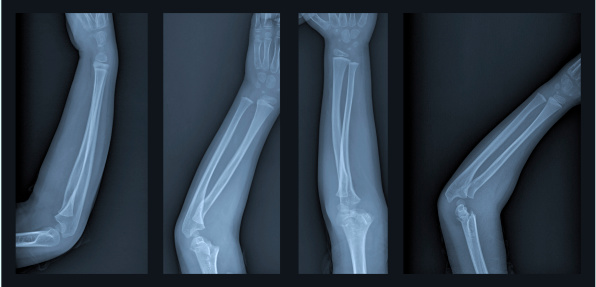
April 15, 2014, by Emma Thorne
Clinical trial to test new nasal spray for osteoporosis
Clinical testing has begun on a novel way of delivering treatment for the brittle bone condition osteoporosis.
The new nasal spray will offer patients an easier method of taking the drug teriparatide, which is a highly effective treatment for osteoporosis but which needs to be injected every day.
The innovation has been developed by the Nottingham biotechnology company Critical Pharmaceuticals and academics at The University of Nottingham and has just begun its first Phase I clinical trial in healthy post-menopausal women at Nottingham University Hospitals NHS Trust.
Easy and effective
Osteoporosis affects an estimated 200 million women world-wide and more than 180,000 patients suffer fragility fractures in the UK alone each year, at a cost of around £2 billion to the NHS.
The nano-enabled spray uses Critical Pharmaceuticals’ CriticalSorb™ technology to deliver teriparatide in a way that is easy for patients to take but also makes it more effective by providing optimal drug levels in the body.
The aim of the trial is to study the levels of the drug in the body (pharmacokinetics) after intranasal administration of three doses of the teriparatide product compared to subcutaneous injection of the current drug treatment. The study will also test the performance of two different nasal delivery devices and use scintigraphic imaging to better understand how the method of delivery can influence the levels of drug in the body over time.
Professor Alan Perkins, from The University of Nottingham’s Division of Radiological and Imaging Sciences, who is leading the medical imaging aspects of the study, said: “This is an exciting study assessing a new route for the administration for teriparatide. The world-leading imaging facilities in Nottingham will be used to good effect to understand the deposition and clearance characteristics of the drug formulation in the nasal cavity. We will compare delivery from two different devices and relate the results to the levels of the drug in the body to enable an optimal drug-device combination to be selected for further development.”
Debilitating disease
Professor Tahir Masud, Consultant in Geriatric Medicine at Nottingham University Hospitals NHS Trust and Chief Investigator for the clinical study, said: “I look forward to progressing this exciting new therapy for a very debilitating disease into the clinic. A nasal teriparatide product has the potential to significantly benefit patients, their families, carers and clinicians with improved clinical outcomes and greatly enhanced ease of use.”
Dr Gareth King, CEO of Critical Pharmaceuticals, commented: “We are very pleased to be involved in this collaboration with the internationally-recognised team in Nottingham. We have developed a stable liquid formulation of teriparatide using Critical Pharmaceuticals patented CriticalSorb™ technology that has performed exceptionally well in preclinical studies. We look forward to understanding how this product performs in this first human clinical study.”
Dr Richard Pearson in the School of Medicine, the University Principle Investigator on the grant award, said “I am delighted that the clinical study has now commenced and I’m keenly awaiting the data on the nasal residency and the pharmacokinetic profile regarding the novel formulation.”
The project is co-funded by the UK’s innovation agency, the Technology Strategy Board, Critical Pharmaceuticals and the Engineering and Physical Sciences Research Council (EPSRC) as part of their investment in nanoscale technology-enabled solutions in healthcare.
No comments yet, fill out a comment to be the first

Leave a Reply